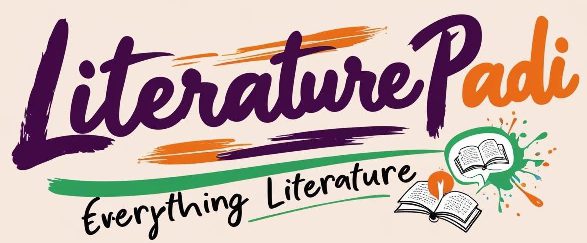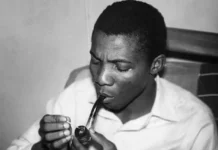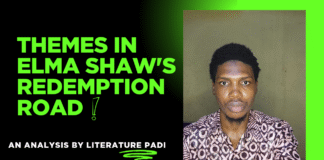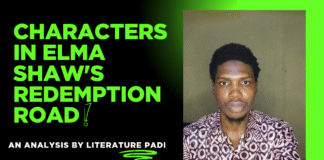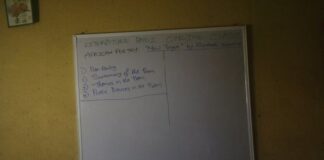🎥 We’re cooking something delicious for you on our YouTube channel. In the coming days, you will learn SSCE literature texts like you're in class 📚✍🏽
Be part of this new journey we are about to embark on.
🔔 Subscribe Now
Themes in “Hurrah for Thunder”
Some of the themes in Christopher Okigbo’s “Hurrah for Thunder” are political instability, oppression, disillusionment, poet as social critic, foresight, and opportunism.
Theme of Political Instability
Political instability is the central theme in “Hurrah for Thunder”. It refers to frequent or abrupt changes in government, often caused by conflict, corruption, or power struggles. Christopher Okigbo uses the fall of the “elephant” to symbolise the sudden overthrow of Nigeria’s First Republic in 1966.
Before the coup, the government is portrayed as powerful but oppressive, like a giant elephant that tramples the grass (ordinary people) underfoot. This imbalance creates tension between the rulers and the ruled. When “thunder” strikes, it represents a violent shift in power: the military takes control.
However, instead of solving the problems that led to the fall of the previous government, the new rulers (likened to “hunters” dividing pumpkins) quickly focus on personal gain. This shows how political instability can create a cycle: one regime falls, another takes over, but the underlying issues such as greed, poor governance, and disconnection from the people remain. This is akin to a position taken by Ayi Kwei Armah in his poem titled “News” which examines the recycling of obscene corruption and bad leadership with the change of hands that come with coups.
In “Hurrah for Thunder”, instability is about uncertainty. Citizens cannot trust their leaders to act in their interest, and leaders themselves are warned to “remember thunder”, which is a reminder that their hold on power can be just as temporary.
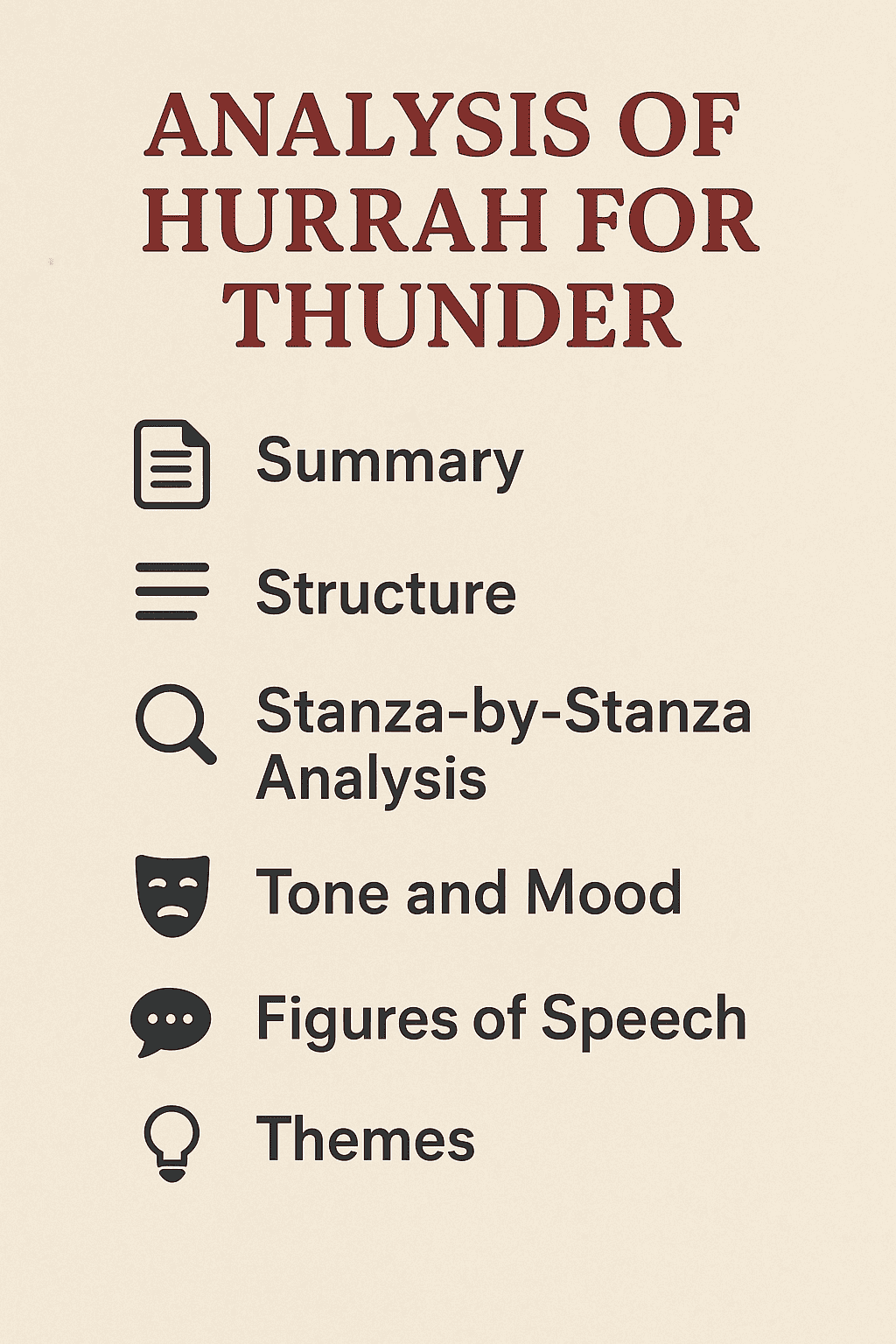
Theme of Oppression
Oppression happens when those in power use their position to control, silence, or harm others, leaving them powerless to resist. Oppression is well portrayed in “Hurrah for Thunder”; Christopher Okigbo paints a vivid picture of oppression through the image of the “elephant,” the ruler of the jungle.
This elephant is portrayed as a dictatorial and oppressive ruler, a “tetrarch of the jungle” whose “four mortar legs pounded the earth” and for whom “the grass was forbidden to be there”. This imagery symbolises the suppression of the common people (“the grass”) by a powerful and ruthless political elite.
“Hurrah for Thunder” critiques the tyrannical nature of the pre-coup government led by Prime Minister Tafawa Balewa and the four regional premiers. This government is so dominant and intimidating that citizens have no room to grow, speak, or challenge authority.
Okigbo’s choice of words like pull, pounded, and forbidden reinforces the sense of suffocating control. The rulers act as if they own the land and the people in it. They govern in ways that favour themselves while ignoring the needs of the masses.
In this way, fear and silence replace freedom and participation. The poem shows how such a system breeds resentment and, eventually, rebellion, paving the way for the “thunder” that topples the elephant.
Theme of Disillusionment with Change
Disillusionment with change happens when people expect a big shift, like a new government, to bring improvement, only to find that things stay the same or even get worse. “Hurrah for Thunder” explores this feeling through Nigeria’s political transition in the 1960s.
The “elephant” represents the First Republic government, which came into power after independence. At first, many Nigerians hoped self-rule would mean fairness, unity, and progress. But the poem shows that instead of freeing the “grass” (ordinary citizens), the leaders trampled it underfoot. Political corruption, regional rivalries, and selfish governance created disappointment rather than the liberation people had dreamed of.
When the “thunder” strikes down the elephant, it could have been a chance for real change. However, Okigbo does not see it that way. He is not celebrating the military takeover. He sees the “hunters” (the military) as selfish and greedy, talking about “pumpkins” (spoils of power). This points to the theme that one oppressive regime has simply been replaced by another, and the country’s political future remains uncertain.
Okigbo warns, though, that change without genuine reform is just a reshuffling of power, and it leaves citizens feeling betrayed, cynical, and weary of promises.
Get the Full Analysis in PDF
Enjoying this breakdown? What you’re reading is just part of the full experience. The premium PDF edition brings everything together in one seamless, distraction-free document that has the poem, themes, structure, and full commentary. If you’re studying seriously, this is the version you’ll want.
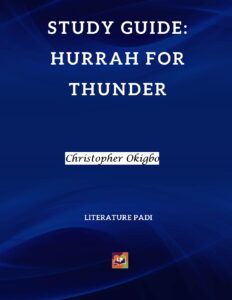
The Role of the Poet as a Social Critic
In “Hurrah for Thunder”, Christopher Okigbo makes it clear that poetry can be a tool for truth-telling and holding power accountable. By speaking out against injustice, corruption, and poor leadership, the poet takes on the role of a social critic.
In the final stanza, Okigbo calls himself the “town-crier” with an “iron bell.” A town-crier is someone who makes public announcements, ensuring everyone hears important news. Here, it’s a metaphor for the poet’s duty to alert society to problems that may be ignored or hidden. The “iron bell” symbolises the strength and persistence of his voice.
But this role comes with risks. Okigbo admits that speaking out could “send him to hell,” meaning he could face punishment, persecution, or even death for criticising those in power. Despite the danger, he still embraces his responsibility to truth, justice, and the welfare of the people.
On the whole, this theme highlights the courage and responsibility of the artist in confronting political injustice.
Theme of Foresight
In “Hurrah for Thunder”, Christopher Okigbo shows that a poet can also be a kind of prophet; someone who senses trouble ahead and warns people before it happens. This theme appears in the way Okigbo doesn’t just talk about what has happened but also about what could happen next if the new leaders repeat past mistakes.
Phrases like “let them remember thunder” act as warnings. The “thunder” represents sudden, disruptive change such as the military coup that overthrew the First Republic. By reminding the new leaders of what happened to their predecessors, Okigbo is predicting that greed, selfishness, and bad governance could lead to another downfall.
In this way, the poem is prophetic. The poet’s warnings about the military’s self-interest and the potential for further conflict foreshadow the events that followed the January coup, including the counter-coup in July 1966. The poem suggests that history is a cycle of power struggles and that true justice is difficult to achieve.
Theme of Opportunism
Christopher Okigbo uses the image of “hunters” discussing “pumpkins” after the fall of the “elephant” to show how some people quickly take advantage of a crisis for their own benefit. Instead of focusing on fixing the nation’s problems, these new leaders are already thinking about how to share the “meat” (political power) and “pumpkins” (national resources) among themselves.
This is opportunism; putting personal gain ahead of the common good. Okigbo warns them to “remember thunder,” meaning they should think about the downfall of the leaders before them and realise that they, too, could be overthrown if they act selfishly.
The theme shows how leadership changes can often lead to a scramble for wealth and influence, instead of genuine reform.
Receive Literary Updates through our Social Media Channels:
- WhatsApp: Literature PADI
- Telegram: Literature PADI
- YouTube: @literaturepadi
- Facebook: Literature PADI
